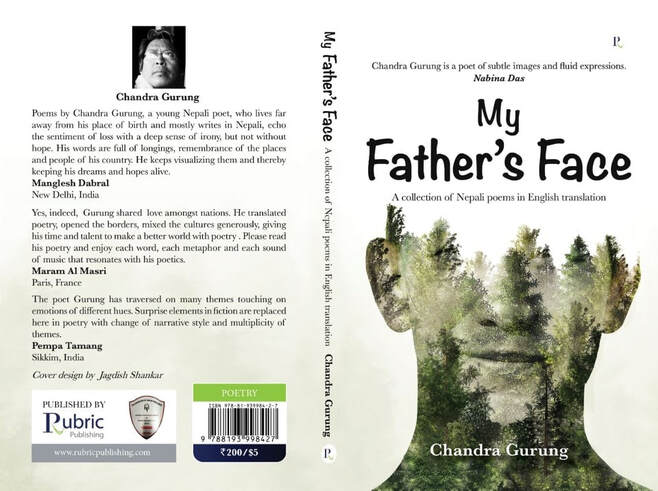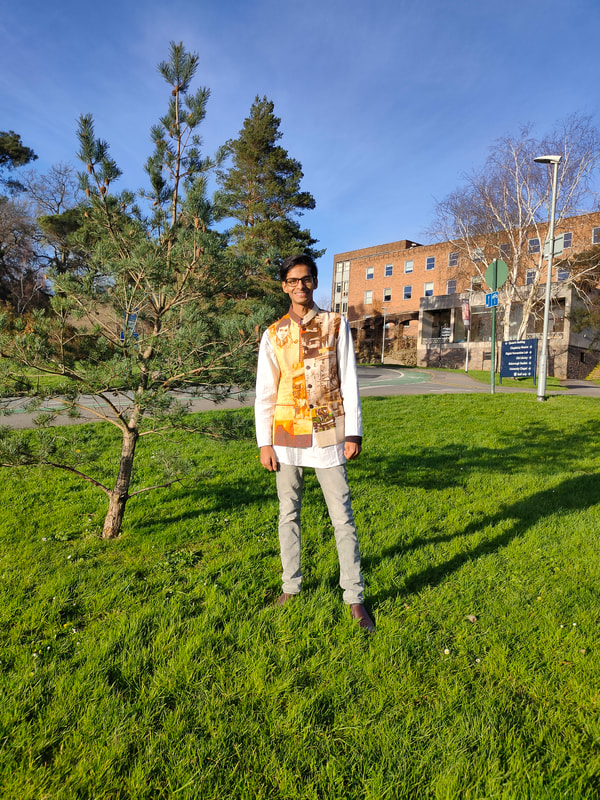Chandra Gurung's My Father's FaceReviewed by Koushik Goswami
|
|
Chandra Gurung’s recently published book entitled My Father’s Face is a welcome arrival of a fresh bouquet of Nepali poetry in English translation. Gurung, a Nepali poet located in the diaspora, looks back to his own beautiful country, devastated by civil war, natural disasters, poverty and corruption, and documents his responses in aesthetically pleasing poetic diction and images. The poems are translated smoothly by Mr. Mahesh Paudyal – the strains of translation, even if present, are hardly evident. It is certainly a valuable contribution to a field of studies less traversed. Along with other literary works currently being produced by Nepalese creative writers in English and English translation, Gurung’s collection of poems will help foreground his country’s legitimate claim in South Asian literature.
Chandra Gurung is currently located in the Kingdom of Bahrain. He usually writes in the Nepali language. The book under review – My Father’s Face – is a collection of forty-seven Nepali poems. The poems reveal the pleasures and pangs of an individual in exile – a longing for home, the memory of the pristine natural beauty, of the political turmoil, and a deep sense of concern for his nation. From thematic point of view, this volume can be divided into three broad sections: poems dealing overtly with the theme of nation and nationalism, poems focused on the diasporic longing for home and poems dealing with poetic sensibilities. The title of this book relates the father figure to the nation. The title is used in a metaphorical sense. In the title poem “My Father’s Face,” his father becomes the symbol of his homeland, Nepal. The use of the image of a male face on the cover page reinforces this impression. What is said in words in the title poem corresponds to what is portrayed in the image of the face on the cover page. The floral world of Nepal, such as pines and orchids, is superimposed on the face. The father’s face indeed becomes the face of the country itself. Gurung captures a picture of the beauty of the mountains and the pleasant natural environment of Nepal. The images employed by him bring out a sense of his deep attachment to nature. Images of ‘sun,’ ‘moon,’ ‘air,’ ‘storm,’ ‘thunder,’ ‘trees,’ ‘mountain,’ ‘winds,’ ‘stars,’ ‘rainbow,’ ‘rain,’ ‘clouds,’ ‘morning,’ ‘sky,’ ‘rivers,’ ‘horizon,’ ‘garden,’ ‘woods,’ ‘flames,’ ‘rain showers,’ ‘earth,’ ‘bough,’ and ‘leaf’ are used in a positive way in the first eight poems. At the same time, he critiques the government and political institutions of Nepal. He speaks of the filthy politics, the deep-rooted corruption and unimaginable poverty. It appears that God has been ‘slaughtered,’ ‘butchered,’ and ‘murdered’ in Nepal. He poses several questions in the course of his narratives: How is the beauty of Nepal destroyed? How does the ‘ill time’ of Nepal prevail everywhere? How does the hunger ‘hound the hollow belly?’ All these questions are raised by the poet. Nepal is portrayed as a garden and its beauty is robbed by a tormenter in the form of a storm. A deep sense of attachment to his nation is prominent in most of his poems. Some of his poems deal with Nepal as a nation. Nepal is compared with an old lamppost in one of the poems: |


